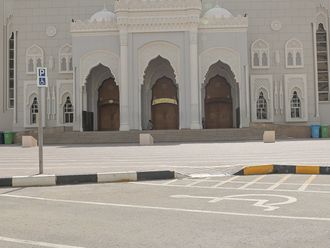I am a law graduate and was working with a law firm in Dubai until 2008. Now I am planning to take a postgraduate diploma in Aviation Law and Air Transport Management from the National Academy of Legal Studies and Research (NALSAR) in Hyderabad, India, in association with the Department of Civil Aviation, in Sharjah. What are the career opportunities? Please advise.
Sindhya Sajeev via email
With the growth of the aviation industry there will always be a demand for people specialising in aviation law, for their knowledge in aviation safety, air travel, space rights and international law. The business aspects of airlines and their regulations fall under aviation law. Normally, the study of international law also covers quite a few aspects of aviation law.
Aviation lawyers are required by companies for negotiating purchase and leasing of aircrafts as well as for the insurance and taxation matters associated with such transactions. Aviation lawyers could also work for banks and further specialise in aviation finance. Of late, aviation finance personnel have been exploring the realm of Islamic financing.
Another exciting area to consider is space law, which is a new branch of aviation law governing activities in outer space. For example, Sunderland University offers modules covering legal questions surrounding space exploration, tourism, safety and off-world commercial ventures. A good college counsellor would be able to guide you and set up interviews with universities.
I completed my Plus Two [higher secondary education] in India in 2006 with biology as a major subject, although I studied mathematics in grade 11. I would like to study architecture in order to either earn a degree such as a Bachelor of Architecture (B.Arch) or a diploma, if there is one, through a correspondence course from an Indian university. Am I eligible? If so, how can I pursue it?
It is generally not advisable to do a Bachelor of Architecture via correspondence and you are unlikely to find a reputable institution in India offering this programme. You should check with the Council of Architecture to find out if there are any recognised institutions offering a degree in architecture via correspondence. In India, the B.Arch is a five-year course to which students apply after they have completed their time at high school. Prerequisites include maths, physics and chemistry.
Sana Khan
However, there may be a few colleges in the US and Canada that offer this course. Any college that offers a Bachelor of Architecture online via distance learning would consider your grades and work experience. Colleges offering courses via the internet will expect you to work under the direct supervision of a registered architect, as you can never master all the architectural principles with an online programme alone.
You could also explore the Bachelor of Science in Architecture, which usually takes four years and is similar to the B.Arch.
Career choices with this qualification would be in landscape architecture and in the study of buildings. A landscape architect would be familiar with design, horticulture and engineering, among other things.












